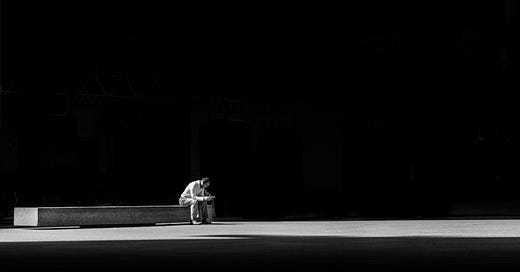Missing the Monoculture
a.k.a. The fracturing of electronic music and what happens to a subculture when its participants no longer share the same experiences.
Simon Reynolds has been doing the interview rounds in recent weeks, promoting his new book Futuromania. (Just FYI, the celebrated writer also talked a bit about the book when he was interviewed here in First Floor last year.) Considering the influence he’s had over the shape and direction of electronic music discourse over the past few decades, I’m always curious to hear what Reynolds has to say, but there was one specific exchange during his recent appearance on the No Tags podcast that set my mind’s gears in motion. Oddly enough, what lit me up was their discussion of Daft Punk’s Random Access Memories—an album that I’ve personally never liked—and what I found most interesting wasn’t so much what Reynolds himself said, but when No Tags co-host Chal Ravens quoted the following passage from Futuromania back to him:
[Daft Punk] attempted to reconstruct the entire cultural matrix that once produced albums like Rumours and Off the Wall, not just the analogue means of production, but the analogue sense of temporality. In particular, the Event, the mass, synchronised experience of ‘the whole world’ tuning into some kind of cultural artefact—movies like Star Wars, records like Thriller. There’s a nostalgia here, not just for the monoculture, but for monotemporality, a shared experience of time. This feeling of mass synchrony is inseparable, I think, from concepts like progress and the future.
When asked by Ravens if he thought we were all living in a time defined by mass asynchronicity, Reynolds said the following:
I feel like everything’s so fractured now and I don’t feel like we’re on the same timeline. And just anecdotally, when I meet people, it’s harder to find something you’ve all listened to or watched. But there are still [events], like award ceremonies, oddly—which I don't remember ever having any interest in as a young person—which become these enormous convergences of attention. And I think part of the appeal is that everyone is paying attention.
Attention, of course, has become something of a precious commodity, particularly in the context of a culture in which we’re all being bombarded with a constant firehose of content. Music, television, movies, social media, memes, video games… the options are endless, and that reality has given rise to a shrieking sea of artists, creatives and content creators, all of them pleading, “Look at me, please! My livelihood depends on it!” Electronic music, even in its supposedly “underground” corners, has also surrendered to this dynamic, and in an environment where DJs, producers, promoters and pretty much anyone hoping to have something resembling a sustainable career are increasingly required to function as digital buskers and online personalities, it’s no wonder that so many have grown disenchanted with the current state of the culture.
That disenchantment is something that cuts across generations, but it’s felt most acutely by those who remember the “before times,” and got involved in electronic music during a time when the genre was governed, at least in theory, by a different economic and ethical framework. It’s easy to dismiss their complaints as misty-eyed nostalgia for the “good old days,” especially since intergenerational tension has always been a part of all music subcultures. But what’s happened in electronic music, and dance music in particular, during the past decade goes deeper than the natural passage of time and a bunch of dudes simply getting older; it also has to do with what Reynolds was talking about: the loss of not just the monoculture, but monotemporality.



